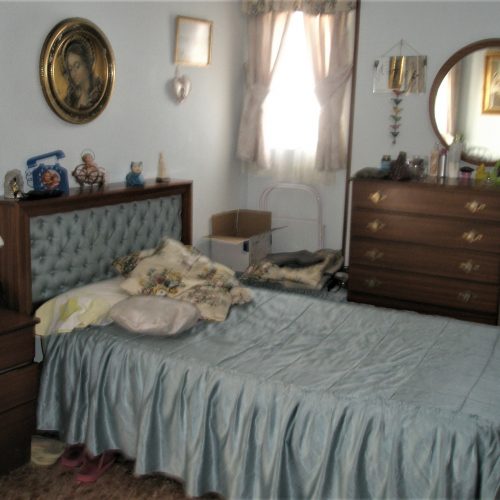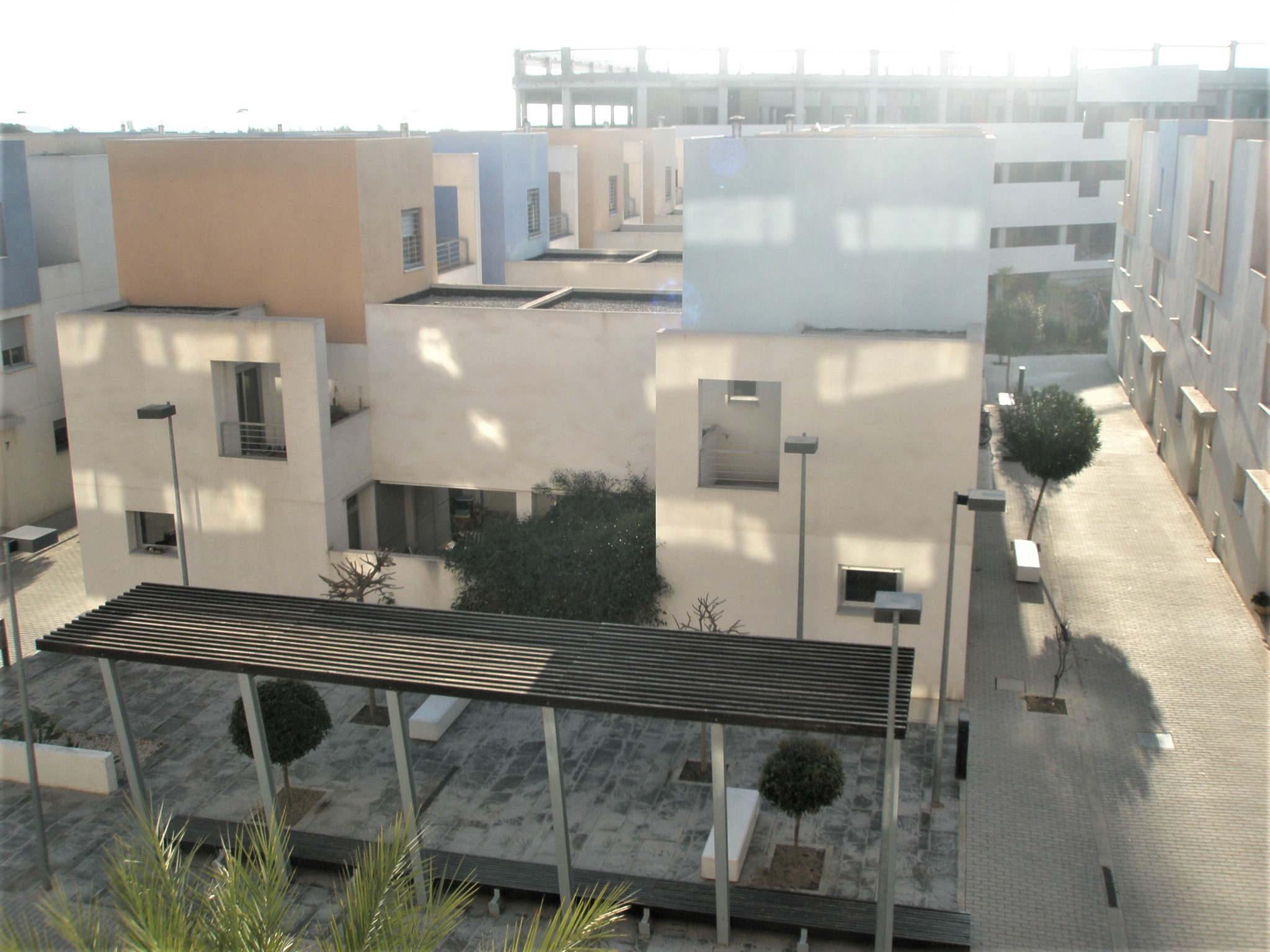
Choosing between a Homestay and Student Residence
Dear Jamie,
When studying abroad in Spain, you will probably have the opportunity to choose between a homestay and a student residence. While each study abroad program may be different in terms of the housing options offered, these are the two most common possibilities. Today we are sharing why both options have benefits and why Dani chose to live in a homestay.
First and foremost, it’s essential that you understand what these two options mean in order to get the most out of either experience, so let’s consider them in turn:
 A “homestay” is an immersive experience into the Spanish family life as it incorporates you into a local family’s home. You almost always receive someone who becomes like a madre (mother) to you and maybe a padre (father), hermana (sister), abuela (grandma), etc. as well. This options gives you the chance to get to know family traditions and typical customs of the Spanish people. You’ll have more direct contact with locals of different ages and perhaps form bonds strong enough to (respectfully!) ask the older generation about their experience with the Civil War and Francisco France, their opinions on current politics, bullfights, etc. This option tends to come with more Sunday family meals and authentic experiences with local Spanish celebrations.
A “homestay” is an immersive experience into the Spanish family life as it incorporates you into a local family’s home. You almost always receive someone who becomes like a madre (mother) to you and maybe a padre (father), hermana (sister), abuela (grandma), etc. as well. This options gives you the chance to get to know family traditions and typical customs of the Spanish people. You’ll have more direct contact with locals of different ages and perhaps form bonds strong enough to (respectfully!) ask the older generation about their experience with the Civil War and Francisco France, their opinions on current politics, bullfights, etc. This option tends to come with more Sunday family meals and authentic experiences with local Spanish celebrations.
A student residence, however, can be a great option if you want to get a more immersive experience into the student life in your city. You will obviously be surrounded by more young people and you are bound to get invited to more parties. While the people in your homestay are likely to explain the roots of a local celebration (usually religious), these young people will clue you in on what currently happens at the event (usually lots of drinking and dancing). The opportunity to talk with Spaniards about their opinions regarding history and current events will also arise, though with more exposure to the younger generation.
 Clearly, both options are great ways to form relationships and learn more about Spanish culture. Something to keep in mind, however, is that the “campus life” you may be used to in the United States is not very common in Spain. Most universities consist of historic buildings spread out in different facultades, or areas of study, with student residences sprinkled throughout the city. These are not usually the “residence halls” that you may envision, but rather normal shared apartments set aside for the university to rent out to students.
Clearly, both options are great ways to form relationships and learn more about Spanish culture. Something to keep in mind, however, is that the “campus life” you may be used to in the United States is not very common in Spain. Most universities consist of historic buildings spread out in different facultades, or areas of study, with student residences sprinkled throughout the city. These are not usually the “residence halls” that you may envision, but rather normal shared apartments set aside for the university to rent out to students.
Additionally, young people who go to university in/near their hometown oftentimes live at home and so you won’t find them in the residences. Instead, these homes often fill up with students from other regions of Spain or Erasmus students (study abroaders from other countries within the EU). This can be incredibly interesting as you will probably have the opportunity to come into contact with people from all over. However, talking to your program about the trends in student residence placement can help you better understand who you will find there. We especially recommend asking them if you are more likely to be placed with Spaniards, other foreigners, or Americans. Keep in mind that there is often a tendency for students from the same country (or at least countries sharing the same language) to stick together rather than branch out. If the residence is likely to be full of more English-speakers than Spanish-speakers, that is something you should know ahead of time in order to make an informed choice based on what you want.
We do not believe that there is one “right” choice that will fit everyone’s needs and desires when it comes to finding a home-away-from-home. This is why you should think about why are you are studying abroad and what you hope to gain from it. Consider what are the main reasons you would want to live with certain types of people over others. And, most importantly, try to make a decision that you believe will make you feel happy during your study abroad experience—getting caught up in someone else’s story is an easy way to be disappointed. With that in mind, we would like to share with you why Dani chose to live in a homestay experience when she studied abroad in Alicante:
Dani’s Story
 When it came time for me to check one box or the other, the decision was clear. A homestay fulfilled my personal expectations. I wanted to get to know Spanish culture (and specifically the local Alicante culture) more intimately. I wanted to be challenged to speak Spanish every day and not be tempted to abandon that intention because I was surrounded by a lot of cool English-speakers who might not share the same goal (although I talk about how this priority has shifted in my current life here). I wanted to experience the nightlife, but it wasn’t essential for me to get invited out every night of the week. Basically, I was more intrigued by the nuisances of a Spanish home and upbringing than the university culture.
When it came time for me to check one box or the other, the decision was clear. A homestay fulfilled my personal expectations. I wanted to get to know Spanish culture (and specifically the local Alicante culture) more intimately. I wanted to be challenged to speak Spanish every day and not be tempted to abandon that intention because I was surrounded by a lot of cool English-speakers who might not share the same goal (although I talk about how this priority has shifted in my current life here). I wanted to experience the nightlife, but it wasn’t essential for me to get invited out every night of the week. Basically, I was more intrigued by the nuisances of a Spanish home and upbringing than the university culture.
I personally didn’t meet that many young people outside of my program, so that was a down-side of choosing the homestay. However, I feel like what I gained outweighed that loss because I am someone who needs to feel a sense of home and “sanctuary” to balance out all the newness.
 Of course, you may feel differently and, if so, I recommend you try out the student life! Both options have a lot to offer so I encourage you to think about what it is YOU want to get out of your time in Spain. But maybe you crave constant activity and excitement, in which case a residence may be a better fit. Whatever you decide, go with what feels right TO YOU―and I guarantee it will be a worthwhile experience!
Of course, you may feel differently and, if so, I recommend you try out the student life! Both options have a lot to offer so I encourage you to think about what it is YOU want to get out of your time in Spain. But maybe you crave constant activity and excitement, in which case a residence may be a better fit. Whatever you decide, go with what feels right TO YOU―and I guarantee it will be a worthwhile experience!
Sincerely,
Spain




